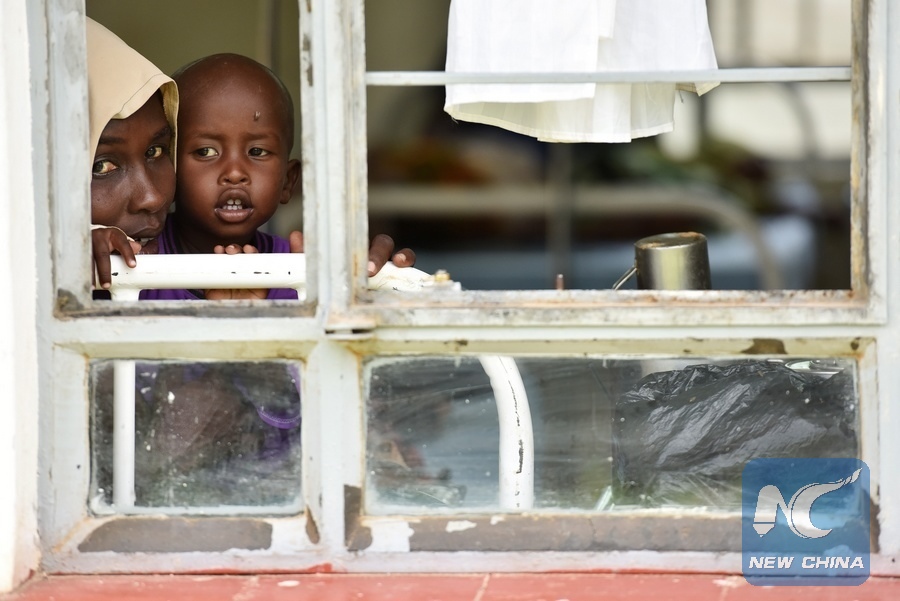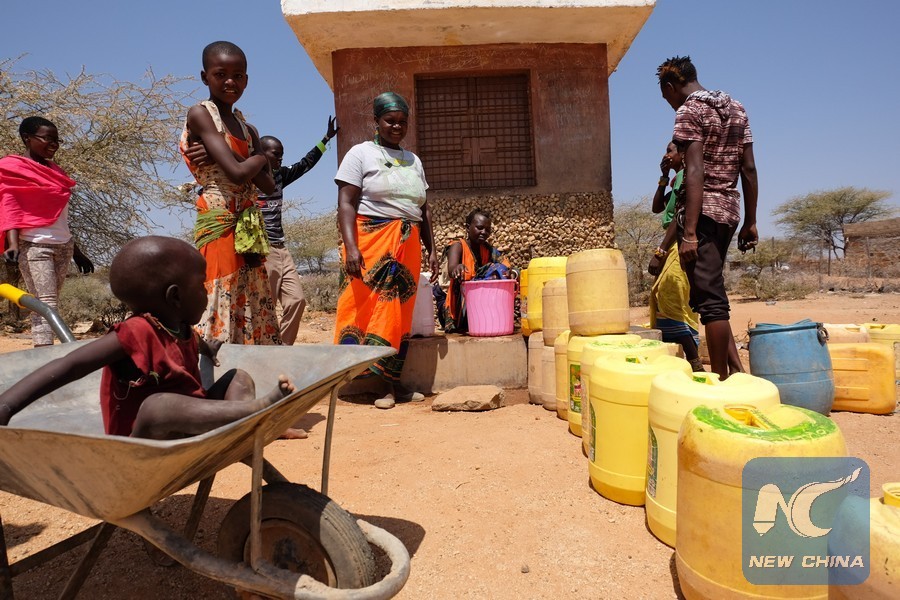
A refugee mother and her child look outside of a window at a hospital in Dadaab refugee camp, Kenya, May 8, 2015. (Xinhua/Sun Ruibo)
NAIROBI, June 20 (Xinhua) -- A paradigm shift is required urgently to break the cycle of droughts that are to blame for acute hunger and malnutrition in the East and Horn of Africa region, a senior charity official said on Monday.
Fatoumata Nafo-Traore, Regional Director for Africa at the International Federation of Red Cross and Red Crescent Societies (IFRC), regretted that countries in the East and Horn of Africa continue to grapple with ravages of famine despite decades of humanitarian support.
"Famine and starvation are threatening the lives of tens of millions of people in Africa today. As we respond to the current crisis, it is imperative that we fast-track efforts aimed at investing in longer-term solutions, if we are to break the endless cycle of food insecurity," Traore remarked.
The UN Office for Humanitarian Affairs (OCHA) in its latest update said that an estimated 26.5 million people in the greater Horn of Africa are food insecure.
During a recent media briefing in Nairobi, UN officials said that Ethiopia, Somalia, South Sudan, Burundi and Kenya are the epicenters of food crisis occasioned by failed rains and conflicts.
Traore proposed radical measures that harness modern technologies to promote climate-resilient food production in the region.
"It is inexcusable in the 21st century to say that Africa is surprised by drought, one of the leading causes of food insecurity. With new technologies, climate prediction, historical data, we can anticipate the onset of drought," said Traore.
He urged governments in the region and their multilateral partners to invest in drought resilience projects that would improve nutrition status of local people.

Local residents wait to collect water in Marsabit, one of the most severe drought regions in Kenya, on March 3, 2017. Kenyan President Uhuru Kenyatta on Friday vowed to enhance drought mitigation measures to ensure all those affected are assisted. Kenya government declared drought a national disaster in February, inviting international community to help in addressing the situation. (Xinhua/Pan Siwei)
"We need to invest in long-term community-level capacities and systems so that local communities are prepared for any future shocks," said Traore, adding that international solidarity is required to strengthen action on desertification and other ecological vagaries responsible for chronic hunger and malnutrition in the region.
International charity Christian Aid said countries in East and Horn of Africa region are staring at a large-scale humanitarian crisis occasioned by acute food and water scarcity.
According to the charity, an estimated 20 million people are at risk of starvation in South Sudan, Ethiopia, Kenya and Somalia unless provision of relief food is stepped up by national governments and bilateral donors.
"The recent disappointing rains in Ethiopia, and also in Kenya have shattered any faint hopes for water sources to fill up, pastures to regenerate and harvest to be viable," said Christian Aid's Head of Humanitarian Programs for Africa, Maurice Onyango.

